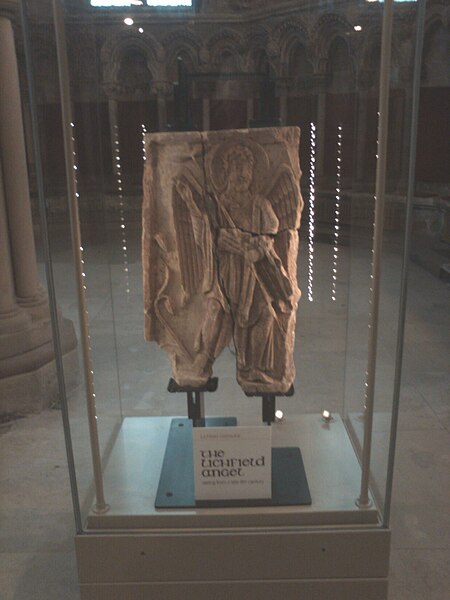Beorhtwulf was King of Mercia, a kingdom of Anglo-Saxon England, from 839 or 840 to 852. His ancestry is unknown, though he may have been connected to Beornwulf, who ruled Mercia in the 820s. Almost no coins were issued by Beorhtwulf's predecessor, Wiglaf, but a Mercian coinage was restarted by Beorhtwulf early in his reign, initially with strong similarities to the coins of Æthelwulf of Wessex, and later with independent designs. The Vikings attacked within a year or two of Beorhtwulf's accession: the province of Lindsey was raided in 841, and London, a key centre of Mercian commerce, was attacked the following year. Another Viking assault on London in 851 "put Beorhtwulf to flight", according to the Anglo-Saxon Chronicle; the Vikings were subsequently defeated by Æthelwulf. This raid may have had a significant economic impact on Mercia, as London coinage is much reduced after 851.
Penny of Beorhtwulf Legend: ber(ht)vlf rex
Coin of Beorhtwulf
Mercia was one of the three main Anglic kingdoms founded after Sub-Roman Britain was settled by Anglo-Saxons in an era called the Heptarchy. It was centred on the River Trent and its tributaries, in a region now known as the Midlands of England.
The Staffordshire Hoard, discovered in a field in Hammerwich, near Lichfield in July 2009, is perhaps the most important collection of Anglo-Saxon objects found in England
The Lichfield Angel carving




